
Visit to the Yasukuni Shrine is to revive militarism. It seriously hurts the feelings of the people of Asian countries, and blatantly challenges the current international order. If Japan continues to slide down the wrong road, it has no future.
A fox cannot hide its tail. Japan's Prime Minister Shinzo Abe made donations to the shrine and three cabinet ministers prayed at the shrine over the weekend, according to local media. Another report says members of a bipartisan group of lawmakers promoting visits to Yasukuni are set to visit the shrine Tuesday.
The essence of visit to the Yasukuni Shrine, which honors 2.5 million Japanese war dead, including 14 Class-A criminals of World War II, is crystal clear. Worshiping the war criminals is to revive militarism. It seriously harms the feelings of the people of Asian countries, and defies the current international order. Whether he visits the shrine in person or just makes donations to it, and whether it is a private visit or a visit in capacity as a cabinet member, it cannot change the nature of the act.
Since taking office, Abe has been trying to conduct his so-called balance strategy, both in external relationships and wooing the public for more support. Japan's Liberal Democratic Party (LDP) said last month to continue visit to the Yasukuni Shrine.
However, there is no such thing as balance regarding the treatment of the history of the Japanese military aggression. No matter using what kind of form to visit the Yasukuni Shrine, it is to insist on the wrong view of history and to have impact on Asia's peace and stability.
In reporting Abe's attitude toward the visit to the Yasukuni Shrine, Japanese media have repeatedly use the word "ambiguous", which shows Abe's government is very clear that turning back the wheel of history will seriously hurt the feelings of people throughout Asia. But if Japan refuses to reflect on the issue, "ambiguous" and "naked" will mean the same. Japan is destined to suffer a setback if it relies on tricks to make balance.
Victor Hugo's well-known saying "What is history? An echo of the past in the future; a reflex from the future on the past," pointed out the relations among the history, the present and the future.
Japan is difficult to make complete break with the history of the Japanese military aggression, which is likely to have influence on its view of development and view of Asia. What's Japan's next step? People of Asia must maintain heighten vigilance.
History and reality are difficult to separate, and distorted ideas are bound to lead to extreme action. Abe's pragmatism may be only skin-deep. In the past, he and fellow right-wingers in the cabinet have promoted a revisionist view of history. He appears to think that Japan did very little bad in the imperial years before its utter defeat in 1945. Even weirder, Abe writes as if Japan has done little good in the years since, according to a story published on March 2 by British's Economist.
Only when Japan faces up to its aggressive past, can it embrace the future. If it continues to slide down the wrong road, it has no future.
Read the Chinese version: 参拜撕去“暧昧”伪装
Source: People's Daily; Author: Zhong Sheng
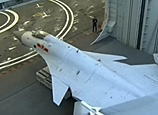



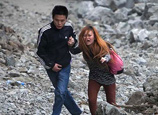

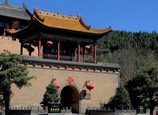
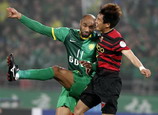
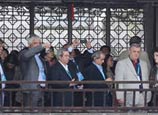
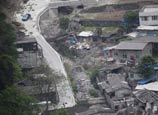






 Photo story: 'Grassroots philanthropist' donates foods to quake zone
Photo story: 'Grassroots philanthropist' donates foods to quake zone


![]()
